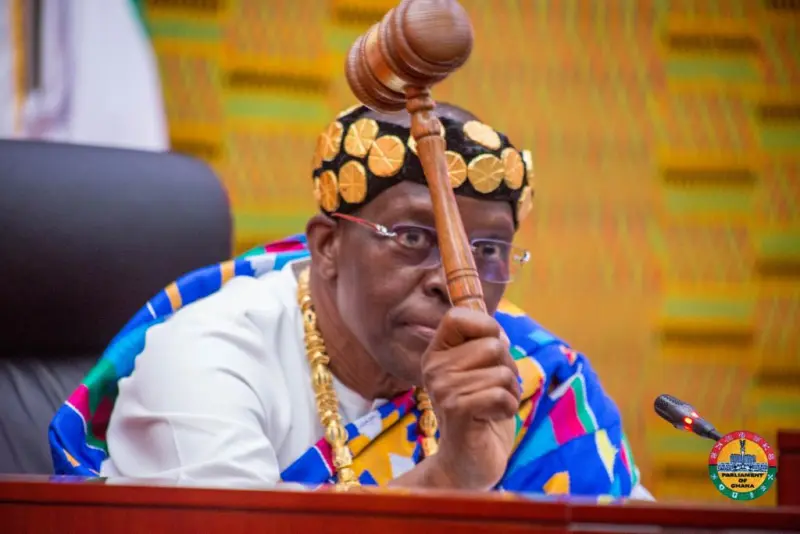Supreme Court Justice Amadu Tanko, one of two judges who dissented in the 5:2 majority decision involving Efutu MP Alexander Afenyo-Markin and Speaker of Parliament Alban Bagbin, has cast doubt on the durability of the ruling. He predicts that the decision could be overturned soon.
Justice Tanko remarked,“I do not hasten to proclaim that, I have apprehended with despair the majority’s conclusion in this suit but I state, with utmost deference to the Hon. Chief Justice and the rest of my brethren in the majority that, not only do I fundamentally disagree with their conclusion, I, with all due respect, also find the decision an aberration to the established and accepted judicial position of this court which with profound respect, I hope in no distant future the resultant usurpation of the constitutional prerogative of the High Court incidental to the majority decision will be reversed.”
The core of Justice Tanko’s dissent lies in his interpretation of constitutional boundaries, particularly regarding the Supreme Court’s jurisdiction in cases explicitly designated to the High Court.
He highlighted Article 99 of Ghana’s 1992 Constitution, which gives the High Court exclusive authority to rule on parliamentary seat vacancies.
Justice Tanko contended that even when constitutional issues require enforcement or interpretation, the Supreme Court cannot assume jurisdiction over matters explicitly assigned to other courts.
He explained that while Article 130 grants the Supreme Court jurisdiction over constitutional interpretation, Article 99 specifically entrusts the determination of parliamentary seat vacancies to the High Court.
He further argued that allowing the Supreme Court to decide on such issues effectively overrides the High Court’s authority, which the Constitution does not permit.
Supporting his position, Justice Tanko invoked the legal principle of generalia specialibus non derogant (general rules do not override specific rules), asserting that Article 99’s specific provision must take precedence over the broader provisions of Article 130.
Justice Tanko also referred to precedent, including the Parliamentary Election for Wulensi Constituency case, which reaffirmed the High Court’s jurisdiction in similar disputes. He concluded that the majority decision not only contradicts established legal principles but is also unlikely to stand the test of time.
“The conclusion I have arrived at should in no way be construed as suggesting that the Supreme Court is not the appropriate forum vested with jurisdiction to interpret and/or enforce the Constitution in appropriate circumstances. The point which I unequivocally emphasise is that, it is the same Constitution, 1992 which vested exclusive power in the Supreme Court in matters of interpretation and enforcement of its provisions which also designed the mechanism for this court to assume jurisdiction. Thus, although this court has a general jurisdiction to interpret and enforce provisions of the constitution, there are situations, such as in the instant case where the procedure adopted in invoking this court’s interpretative and enforcement jurisdiction has deprived the court of the power to exercise that jurisdiction. This particular action clearly demonstrates more than any other case I have confronted in constitutional law jurisprudence the failure by a party to comply with mandatory constitutional provisions in invoking jurisdiction and it is destined to fail. The above statement is supported by the recent decision of this very court in OWUSU-MENSAH VS. NAPTEX & ORS [2017-2020] 2 SCGLR 708 at 711. ’” A court might have jurisdiction to entertain a cause or matter but the procedure invoking its jurisdiction might deny the court the jurisdiction. That would occur where a statute had specially laid down the procedure for redress.”’

